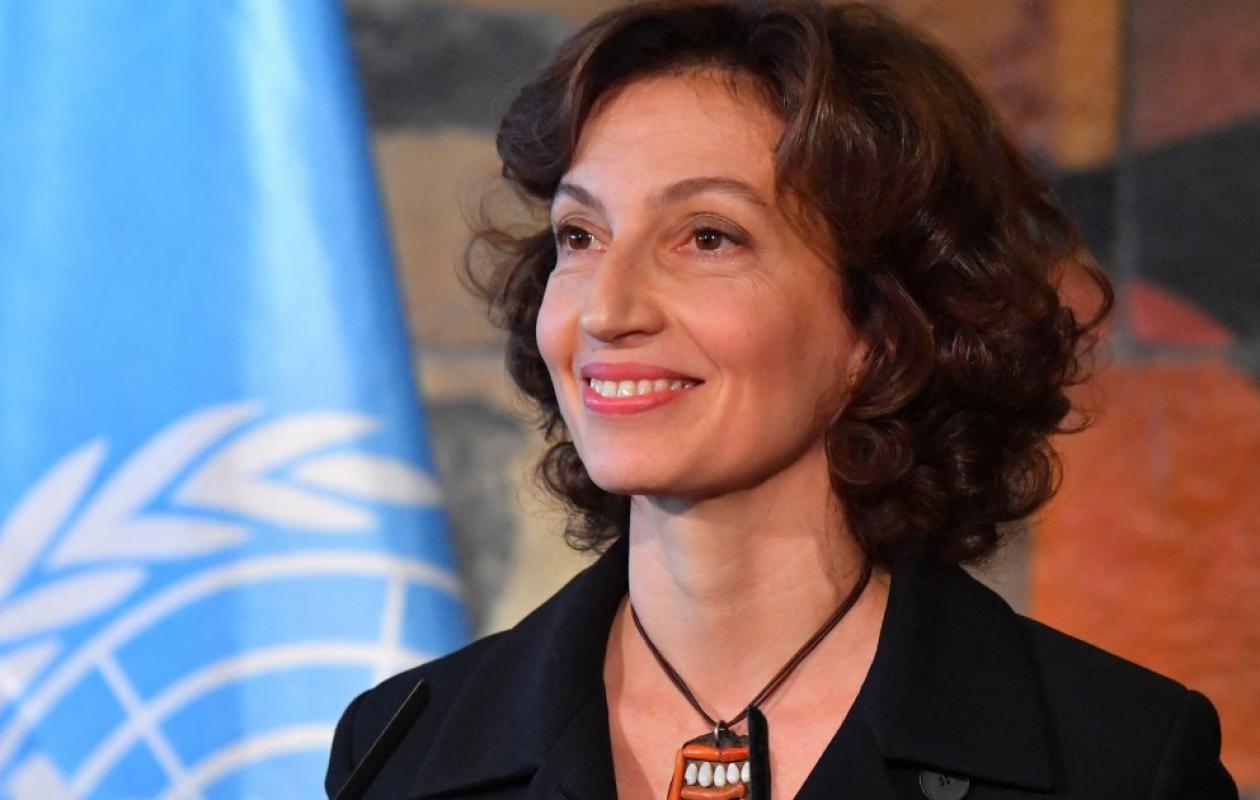
Patrimoine, éducation et intelligence artificielle : le legs africain d’Audrey Azoulay
With just a few weeks to go before the end of her term, Audrey Azoulay wanted to talk about legacy. Eight years at the helm of UNESCO are coming to an end, and it was in front of journalists from French-speaking Africa that the outgoing Director-General chose to reflect on the road traveled. Her successor, Egyptian Khaled El-Enany, will officially take office on November 14.
"I am approaching the end of my term at UNESCO after eight years as Director-General since my first election. It is also a time to take stock and look back on what has been achieved," she declared at the outset, before adding that this review focused "particularly on our priority for Africa."
This priority, which was established as a global dimension of UNESCO's mandate in 1989, she recalled, is in line with a long history of cooperation and intellectual dialogue with the continent. Audrey Azoulay recalled the names of African personalities who have left their mark on the organization, citing in particular the former Senegalese Director-General Amadou Mahtar Mbow and the thinkers Amadou Hampâté Bâ and Joseph Ki-Zerbo.
But according to her, the last eight years have marked a "change in dimension." "What was a particular focus has become a mobilization. We have moved from focus to mobilization to reinvent this partnership, in order to make this priority a measurable and structuring reality," she says.
The official highlighted the budgetary effort made by the organization in recent years: "UNESCO's resources have doubled between 2017 and today. But the budget dedicated to Africa has quadrupled." It has increased, she specified, "from 95 million to 383 million" dollars for the current biennium, now representing 27% of the program budget.
The outgoing Director General explained that this change in scale has resulted in increased support in several areas. First, education, where the organization has supported major reforms. "In Côte d'Ivoire, we supported the process from the Estates General to the implementation of reforms in science, engineering, and mathematics," she explained. Similar cooperation initiatives have been initiated in Chad, Liberia, and Cameroon.
UNESCO also claims to have trained "nearly 40 million young people in health and gender equality in 35 countries," in partnership with ministries of education and health. Following the Covid-19 pandemic, the organization launched EducaTV, an educational channel broadcast in around 20 African countries.
Artificial intelligence is among the other key areas of work. "We have supported 29 African countries in developing their artificial intelligence policies and trained thousands of civil servants, judges, researchers, and teachers," she said. Twelve countries, including Senegal, Gabon, and Kenya, have already finalized their national strategies with UNESCO support.
Audrey Azoulay recalled that the organization had held "its first global meeting on the ethics of artificial intelligence" in Morocco in 2018. This partnership led to the creation of an international center dedicated to AI in partnership with Morocco's Mohammed VI Polytechnic University. In September 2024, UNESCO also co-organized, with the African Union and South Africa, a continental conference on AI in Cape Town.
In continuation of this work, the leader referred to the ongoing discussions on neurotechnologies: "Our objective is to co-construct with Africa the first global standard-setting instrument in this field." This text will be submitted to the UNESCO General Conference in San Marino in the coming days.
In her statement, Audrey Azoulay recalled that culture remains at the heart of the organization's African mandate. "Africa has long suffered from historical inequality in our global cultural systems, particularly on the World Heritage List," she acknowledged.
To correct this imbalance, UNESCO has implemented a long-term strategy, namely the training of new experts, conservation projects and the creation of university chairs dedicated to African cultural heritage.
For Audrey Azoulay, this policy aims to "put Africa back in its rightful place, at the heart of the world heritage agenda."
Commentaires (0)
Participer à la Discussion
Règles de la communauté :
💡 Astuce : Utilisez des emojis depuis votre téléphone ou le module emoji ci-dessous. Cliquez sur GIF pour ajouter un GIF animé. Collez un lien X/Twitter ou TikTok pour l'afficher automatiquement.